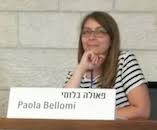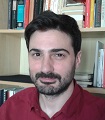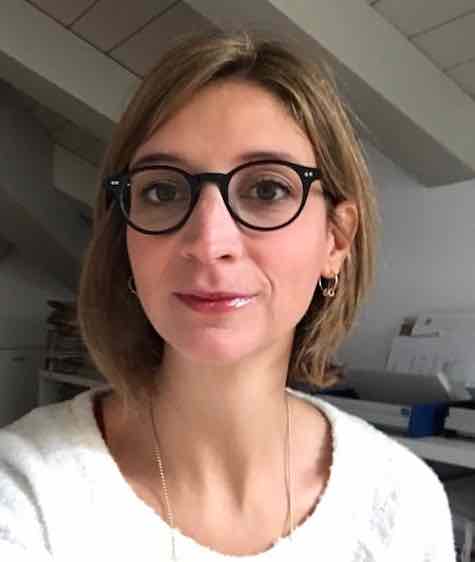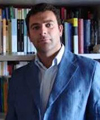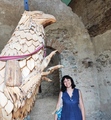Studying at the University of Verona
Here you can find information on the organisational aspects of the Programme, lecture timetables, learning activities and useful contact details for your time at the University, from enrolment to graduation.
Academic calendar
The academic calendar shows the deadlines and scheduled events that are relevant to students, teaching and technical-administrative staff of the University. Public holidays and University closures are also indicated. The academic year normally begins on 1 October each year and ends on 30 September of the following year.
Course calendar
The Academic Calendar sets out the degree programme lecture and exam timetables, as well as the relevant university closure dates..
| Period | From | To |
|---|---|---|
| FULL YEAR | Oct 2, 2017 | Jun 9, 2018 |
| Semester 1 | Oct 2, 2017 | Jan 20, 2018 |
| Semester 2 | Feb 26, 2018 | Jun 9, 2018 |
| Session | From | To |
|---|---|---|
| Winter session | Jan 22, 2018 | Feb 24, 2018 |
| Summer session | Jun 11, 2018 | Jul 28, 2018 |
| Autumn session | Aug 27, 2018 | Sep 22, 2018 |
| Session | From | To |
|---|---|---|
| LAUREE LINGUE - sessione autunnale a.a. 2016/2017 | Dec 18, 2017 | Dec 21, 2017 |
| LAUREE LINGUE - sessione invernale a.a. 2016/2017 | Mar 23, 2018 | Mar 29, 2018 |
| LAUREE LINGUE - sessione estiva | Jul 16, 2018 | Jul 21, 2018 |
| LAUREE LINGUE - sessione autunnale | Nov 12, 2018 | Nov 17, 2018 |
| LAUREE LINGUE - sessione invernale | Apr 12, 2019 | Apr 18, 2019 |
| Period | From | To |
|---|---|---|
| Immaculate Conception | Dec 8, 2017 | Dec 8, 2017 |
| Christmas break | Dec 22, 2017 | Jan 7, 2018 |
| Easter break | Mar 30, 2018 | Apr 3, 2018 |
| Liberation Day | Apr 25, 2018 | Apr 25, 2018 |
| Labour Day | May 1, 2018 | May 1, 2018 |
| Patron Saint Day | May 21, 2018 | May 21, 2018 |
| Republic Day | Jun 2, 2018 | Jun 2, 2018 |
| Summer break | Aug 13, 2018 | Aug 18, 2018 |
| Description | Period | From | To |
|---|---|---|---|
| ANNUALE | ANNUALE | Oct 2, 2017 | Jun 9, 2018 |
Exam calendar
Exam dates and rounds are managed by the relevant Foreign Languages and Literatures Teaching and Student Services Unit.
To view all the exam sessions available, please use the Exam dashboard on ESSE3.
If you forgot your login details or have problems logging in, please contact the relevant IT HelpDesk, or check the login details recovery web page.
Should you have any doubts or questions, please check the Enrollment FAQs
Academic staff
 valentina.adami@univr.it
valentina.adami@univr.it
 paola.bellomi@univr.it
paola.bellomi@univr.it
 daniele.beltrame@univr.it
daniele.beltrame@univr.it
 paolamaria.caleffi@univr.it
paolamaria.caleffi@univr.it
 riccardo.cella@univr.it
riccardo.cella@univr.it
 elisa.dallarosa@univr.it
elisa.dallarosa@univr.it
 sara.dattoma@univr.it
sara.dattoma@univr.it
 mariangela.lando@univr.it - marilando771@gmail.com
mariangela.lando@univr.it - marilando771@gmail.com
 stefania.montemezzo@univr.it
stefania.montemezzo@univr.it
 chunye.niu@univr.it
chunye.niu@univr.it
 alessia.polatti@univr.it
alessia.polatti@univr.it
 dora.renna@univr.it
dora.renna@univr.it
 fabioantonio.scrignoli@univr.it
fabioantonio.scrignoli@univr.it
 tania.triberio@univr.it
tania.triberio@univr.it
 sonia.trovato@univr.it
sonia.trovato@univr.it
Study Plan
The Study Plan includes all modules, teaching and learning activities that each student will need to undertake during their time at the University.
Please select your Study Plan based on your enrollment year.
1° Year
| Modules | Credits | TAF | SSD |
|---|
German literature and culture 1
German literature and culture 1
2° Year activated in the A.Y. 2018/2019
| Modules | Credits | TAF | SSD |
|---|
English literature and culture 2
German literature and culture 2
Spanish literature and culture 2
English literature and culture 2
German literature and culture 2
Spanish literature and culture 2
Geography of communication and international trade
Italian literature and culture
Modern and Contemporary Economic History
Theory and Techniques of communication
3° Year activated in the A.Y. 2019/2020
| Modules | Credits | TAF | SSD |
|---|
Comparative and European Public law
Principles of international marketing
| Modules | Credits | TAF | SSD |
|---|
German literature and culture 1
German literature and culture 1
| Modules | Credits | TAF | SSD |
|---|
English literature and culture 2
German literature and culture 2
Spanish literature and culture 2
English literature and culture 2
German literature and culture 2
Spanish literature and culture 2
Geography of communication and international trade
Italian literature and culture
Modern and Contemporary Economic History
Theory and Techniques of communication
| Modules | Credits | TAF | SSD |
|---|
Comparative and European Public law
Principles of international marketing
| Modules | Credits | TAF | SSD |
|---|
Legend | Type of training activity (TTA)
TAF (Type of Educational Activity) All courses and activities are classified into different types of educational activities, indicated by a letter.
Spanish American language, literature and culture (2018/2019)
Teaching code
4S002909
Credits
9
Coordinator
Language
Spanish
Also offered in courses:
- Spanish American language, literature and culture of the course Bachelor's degree in Foreign Languages and Literatures
The teaching is organized as follows:
Learning outcomes
The main educational objective of the course within the Bachelor’s Degree in Languages and Cultures for Tourism and International Commerce is the acquisition by the student of an appropriate knowledge of the Spanish-American cultures, with particular attention to the literary, historical and geographic-anthropological dimensions.
The expected learning outcomes are as follows:
- Knowledge and understanding: solid preparation on the culture of geographical areas and periods in program, as well as on historical and anthropological fields;
- “Applied” knowledge and understanding: the student will acquire the methodologies required to understand, in an historical and comparative perspective, complex texts of a certain length and implicit meanings;
- Autonomy of judgment: the student must know how to collect and interpret cultural, historical, geographical and anthropological data useful to orally argue and write relevant texts in the chosen address;
- Communication skills: at the end of the course the student must have acquired the ability to express and argue about the teaching contents both in written and oral form in Spanish;
- Learning skills: students must have developed sufficient self-learning skills to take a conscious approach to the world of work or to the continuation of their studies
Program
FIRST PART – Hitory and fiction: an introduction to Hispanic-American culture and literature (6CFU)
• The plurality of the Hispanic-American culture: “mestizaje”, “transculturación”, “heterogeneidad”
• The Spanish Conquest as the base of the Hispanic-American identity
• The beginnings of the colonial discourse: Cristóbal Colón
• The discursive variety of the “crónicas”: models and methodology
• Writing the Conquest: Hernán Cortés y Bernal Díaz del Castillo
• The dissident chronicles: Bartolomé De las Casas
• The peripherical chronicles: Álvar Núñez Cabeza de Vaca
• The mestizo chronicles: el Inca Garcilaso de la Vega
• XXth century narrative: J. Cortázar, C. Fuentes and M.Á. Asturias
• The novel: El reino de este mundo by A. Carpentier
SECOND PART – Otras miradas hacia el pasado: el museo (3CFU)
• What is a museum?
• Hispanic-American museums: materiality, history and fiction
• Telling the identity: Mexico City’s Museo Nacional de Antropología
• Rewriting the history of an object: J. Sologuren, O. Paz and J. Cortázar
Bibliography
| Author | Title | Publishing house | Year | ISBN | Notes |
|---|---|---|---|---|---|
| Néstor García Canclini | Culturas híbridas: estrategias para entrar y salir de la modernidad | ||||
| L. Salvi | Dispensa Prima parte A.A. 2019/2020 | 2019 | |||
| L. Salvi | Dispensa Seconda parte A.A. 2019/2020 | 2019 | |||
| Emilia Perassi | Itinerari di cultura ispanoamericana. Ritorno alle origini e ritorno delle origini | UTET | 2011 | ||
| Rolena Adorno | “Textos imborrables: posiciones simultáneas y sucesivas del sujeto colonial” (Edizione 41) | Revista de crítica literaria latinoamericana | 1995 |
Examination Methods
Oral exam in Spanish. The student should demonstrate to have acquired the ability to critically read the texts in the program, using the theoretical tools provided during the lessons.
Students to be examined must have passed the first-year exams of Spanish literature and language.
Type D and Type F activities
To discover all the teaching activities accredited by the foreign teaching college click here
Career prospects
Module/Programme news
News for students
There you will find information, resources and services useful during your time at the University (Student’s exam record, your study plan on ESSE3, Distance Learning courses, university email account, office forms, administrative procedures, etc.). You can log into MyUnivr with your GIA login details: only in this way will you be able to receive notification of all the notices from your teachers and your secretariat via email and soon also via the Univr app.
Student login and resources
Gestione carriere
Assegnazione tutore
Attività accreditate D/F
Calendario didattico dettagliato
Cambio lingua curriculare
Competenze informatiche
Competenze linguistiche (prima e seconda lingua)
Competenze linguistiche in triennale (terza lingua CFU F)
Compilazione del piano didattico
Corso di Lingua portoghese
Erasmus+ e altre esperienze all'estero
Linguistic training CLA
Presentazione dei corsi di studio e Open day
Graduation
List of theses and work experience proposals
| Stage | Research area |
|---|---|
| PROGETTO MAMBRINO Stage per bibliografia | Various topics |
Saperi minimi
Stage e tirocini
Nel piano didattico della laurea triennale in Lingue per il turismo e il commercio internazionale (L12) è previsto un periodo di stage obbligatorio (CFU 6) in organizzazioni imprenditoriali.
Le attività di stage sono finalizzate a far acquisire allo studente una conoscenza diretta in settori di particolare interesse per l’inserimento nel mondo del lavoro e per l’acquisizione di abilità professionali specifiche.
Le attività di stage sono svolte sotto la diretta responsabilità di un singolo docente presso studi professionali, enti della pubblica amministrazione, aziende accreditate dall’Ateneo veronese.
I crediti maturati in seguito ad attività di stage saranno attribuiti secondo quanto disposto nel dettaglio dal “Regolamento d’Ateneo per il riconoscimento dei crediti maturati negli stage universitari” vigente.
- Tutte le informazioni in merito agli stage per futuri studenti sono disponibili alla pagina Stage e tirocini.
- Tutte le informazioni in merito agli stage per studenti iscritti sono pubblicate in MyUnivr - come fare per - stage e tirocini.
- Tutte le informazioni in merito agli stage per le aziende sono disponili alla pagina Stage e tirocini per azienze.
Ulteriori informazioni al seguente link https://www.univr.it/it/i-nostri-servizi/gestione-carriere-studenti-lingue-e-letterature-straniere/stage-e-tirocini-lingue-e-letterature-straniere


 +39 045802 8409
+39 045802 8409

